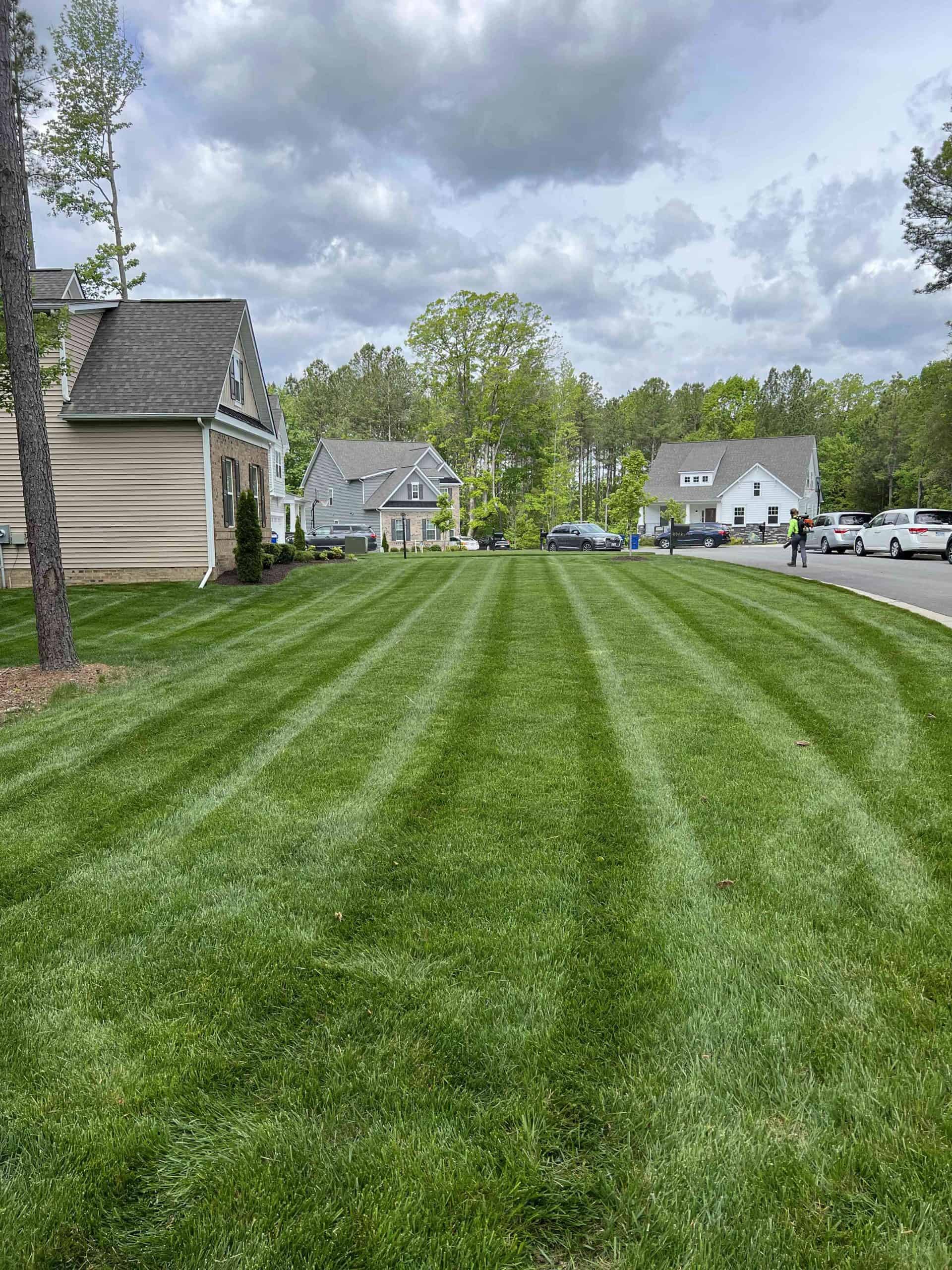Organic lawn care offers a sustainable and eco-friendly approach to maintaining a lush and healthy lawn without synthetic chemicals. By focusing on natural methods such as composting, organic fertilizers, and biological pest control, you can create a thriving lawn that is safe for your family, pets, and the environment.
 Let's explore the benefits and techniques of organic lawn care practices for achieving vibrant, chemical-free landscaping.
Composting for Soil Health and Organic Lawn Care
Composting is a fundamental practice in organic lawn care. It enriches the soil with essential nutrients, improves its structure, and promotes healthy microbial activity.
Start by creating a compost pile or bin in your backyard using a mix of green (nitrogen-rich) and brown (carbon-rich) materials, such as grass clippings, leaves, kitchen scraps, and shredded paper. Then, turn the compost pile regularly to aerate and speed up decomposition.
Next, create a top dressing with the compost. Use it like mulch by spreading a thin layer of finished compost over your lawn once or twice a year to provide a slow-release source of nutrients and improve soil structure. This top dressing also helps retain moisture, suppress weeds, and enhance curb appeal.
Using Natural Fertilizers for Nutrient Balance in Lawn Care
Organic fertilizers derived from natural sources like compost, manure, bone meal, and seaweed offer a safe and sustainable alternative to synthetic fertilizers. Choose slow-release fertilizers that break down we're actually over time because they provide a steady supply of nutrients to the lawn without the risk of bleaching or runoff.
Look for products labeled organic or natural and follow the application instructions carefully. Or contact local lawn care professionals for a stress-free approach.
Let's explore the benefits and techniques of organic lawn care practices for achieving vibrant, chemical-free landscaping.
Composting for Soil Health and Organic Lawn Care
Composting is a fundamental practice in organic lawn care. It enriches the soil with essential nutrients, improves its structure, and promotes healthy microbial activity.
Start by creating a compost pile or bin in your backyard using a mix of green (nitrogen-rich) and brown (carbon-rich) materials, such as grass clippings, leaves, kitchen scraps, and shredded paper. Then, turn the compost pile regularly to aerate and speed up decomposition.
Next, create a top dressing with the compost. Use it like mulch by spreading a thin layer of finished compost over your lawn once or twice a year to provide a slow-release source of nutrients and improve soil structure. This top dressing also helps retain moisture, suppress weeds, and enhance curb appeal.
Using Natural Fertilizers for Nutrient Balance in Lawn Care
Organic fertilizers derived from natural sources like compost, manure, bone meal, and seaweed offer a safe and sustainable alternative to synthetic fertilizers. Choose slow-release fertilizers that break down we're actually over time because they provide a steady supply of nutrients to the lawn without the risk of bleaching or runoff.
Look for products labeled organic or natural and follow the application instructions carefully. Or contact local lawn care professionals for a stress-free approach.
 Schedule fertilizer application for your lawn in early spring and late fall and coincide the routine with periods of active growth and root development. Also, fertilizing should be avoided during hot summer months when grass growth slows down since excessive nitrogen can stress the grass and increase the risk of lawn disease.
Biological Pest Control Practices for Organic Lawn Care
Biological pest control methods harness the power of natural predators, beneficial organisms, and cultural practices to manage pests and minimize damage to your lawn. For example, you can attract and support beneficial insects such as ladybugs, lacewings, and predatory beetles that feed on pests like aphids, grubs, and caterpillars.
Plant flowers, herbs, and native grasses to provide a habitat and food source for beneficial insects. Then, apply microbial inoculants containing beneficial bacteria and fungi to the lawn to improve soil health, suppress disease-causing pathogens, and enhance nutrient cycling.
Adopt cultural practices such as proper mower height, watering techniques, and soil aeration to promote a healthy lawn less susceptible to pest infestations and disease outbreaks. Also, avoid overwatering, excessive fertilization, and compacted soil, which can weaken the property and attract more pests.
Conclusion
Organic lawn care methods offer a sustainable and environmentally friendly approach to maintaining a lush and healthy lawn without the use of synthetic chemicals. Embrace eco-friendly lawn care to nurture your property and enjoy the beauty of nature with chemical-free surroundings.
Schedule fertilizer application for your lawn in early spring and late fall and coincide the routine with periods of active growth and root development. Also, fertilizing should be avoided during hot summer months when grass growth slows down since excessive nitrogen can stress the grass and increase the risk of lawn disease.
Biological Pest Control Practices for Organic Lawn Care
Biological pest control methods harness the power of natural predators, beneficial organisms, and cultural practices to manage pests and minimize damage to your lawn. For example, you can attract and support beneficial insects such as ladybugs, lacewings, and predatory beetles that feed on pests like aphids, grubs, and caterpillars.
Plant flowers, herbs, and native grasses to provide a habitat and food source for beneficial insects. Then, apply microbial inoculants containing beneficial bacteria and fungi to the lawn to improve soil health, suppress disease-causing pathogens, and enhance nutrient cycling.
Adopt cultural practices such as proper mower height, watering techniques, and soil aeration to promote a healthy lawn less susceptible to pest infestations and disease outbreaks. Also, avoid overwatering, excessive fertilization, and compacted soil, which can weaken the property and attract more pests.
Conclusion
Organic lawn care methods offer a sustainable and environmentally friendly approach to maintaining a lush and healthy lawn without the use of synthetic chemicals. Embrace eco-friendly lawn care to nurture your property and enjoy the beauty of nature with chemical-free surroundings.
Organic Lawn Care Methods and Tips
 info@ekglawn.com
info@ekglawn.com